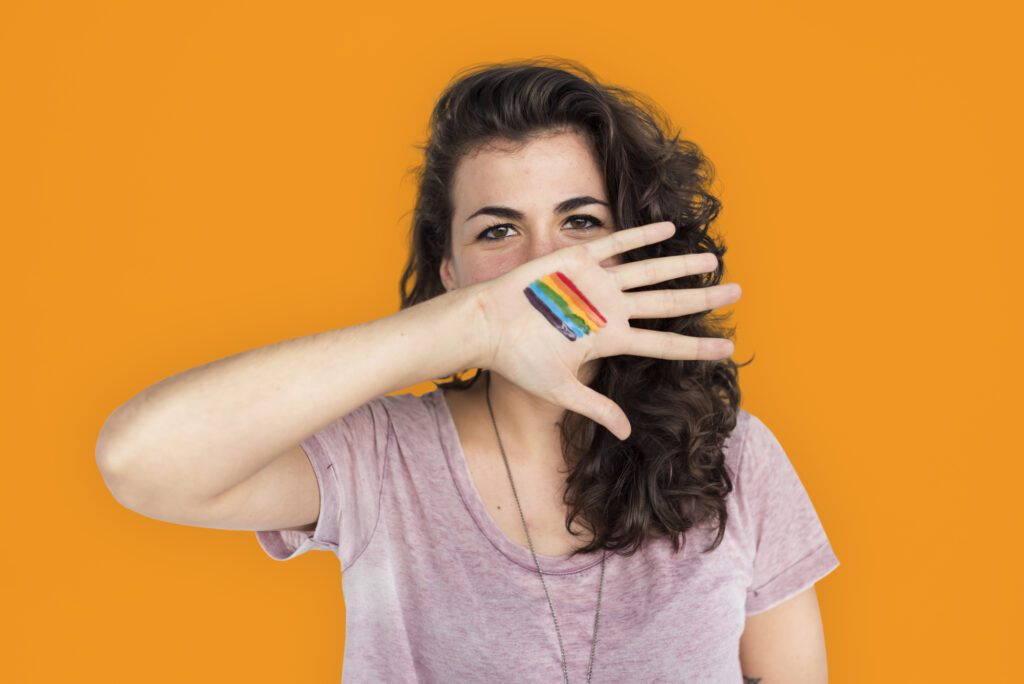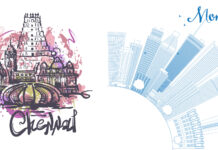A recent article, published in the Journal of Sex Research, investigated how sexual orientation and gender identity and expression change efforts (SOGIECE), also commonly known as conversion therapy, lead to adverse health and social outcomes among two-spirit, lesbian, gay, bisexual, transgender, and other queer (2SLGBTQ+) people who underwent the practices. The results showed that conversion therapy had contributed to experiences of emotional distress, such as feelings of guilt, shame, isolation, as well as mental health concerns, and suicidality.
“Public awareness of and response to the continued occurrence of SOGIECE in Canada and internationally has tended to lag behind scientific research into its prevalence and impacts,” the lead author Travis Salway, a research fellow from the Centre for Gender & Sexual Health Equity in Vancouver, notes.
“The aim of this study was therefore to delineate the emotional, social, and mental health impacts associated with SOGIECE, as well as the significance and meaning ascribed to these impacts, as described by people with lived experience.”
 On December 1st, Canada’s lower house passed the fast-track bill banning the practice of conversion therapy nationally. This is a long-awaited victory for the 2SLGBTQ+ communities in Canada, especially after Prime Minister Justin Trudeau made a public announcement to ban conversion therapy in 2019. Although many researchers have documented the negative consequences of conversion therapy, only five countries, Brazil, Ecuador, Germany, Malta, and Taiwan, have a national ban on conversion therapy.
On December 1st, Canada’s lower house passed the fast-track bill banning the practice of conversion therapy nationally. This is a long-awaited victory for the 2SLGBTQ+ communities in Canada, especially after Prime Minister Justin Trudeau made a public announcement to ban conversion therapy in 2019. Although many researchers have documented the negative consequences of conversion therapy, only five countries, Brazil, Ecuador, Germany, Malta, and Taiwan, have a national ban on conversion therapy.
“SOGIECE constitutes a variety of practices that aim to deny or suppress feelings and desires related to non-heterosexual identities, as well as expression of gender and gender identities that differ from one’s sex assigned at birth,” the lead author explains.
“SOGIECE remain critically under-addressed in public heal research and policy spheres and continues to occur internationally- affecting an estimated 3-18% of 2SLGBTQ+ people, according to population-level surveys in the United States and Canada.”
The research included the analysis from 22 in-depth interviews with 2SLGBTQ+ individuals based on interpretative description methodology. Interviewees were asked to answer, “How do you feel your experience with SOGIECE has affected you,” and were prompted to describe “How various social and contextual features of their lives influence their experience before, during, and following SOGIECE.”
The majority of participants reported that their experiences with SOGIECE had lasted more than one year, were exposed to SOFIECE in adolescence and as young adults, and experienced SOGIECE within faith-based and healthcare contexts. In terms of the SOGIECE reported by the interviewees, these experiences included formalized individual and group counseling sessions (e.g., conversion therapy camps), other faith-based practices (e.g., guided prayer sessions, exorcisms), and more general experiences of being pressured to repress their sexual and gender identities.
There were three interconnected themes identified as the impacts of SOGIECE: (1) feelings of brokenness and wanting to be whole, (2) social and relational consequences, and (3) impacts on mental health and well-being.
“First, Participants described how SOGIECE had reinforced feelings of brokenness and wanting to be whole, which, for many participants, contributed to challenging starts in their adult lives,” the authors write.
Many participants shared how SOGIECE had caused them to feel inferior or “broken” due to their sexual and gender identity. The experience of SOGIECE also aggravated the feeling of brokenness. They reported feelings of shame and confusion, which impacted their self-image and self-esteem.
At times, participants also felt a sense of self-blame and regret over having “voluntarily” attended SOGIECE since a part of them wanted to stop experiencing desires for sexual and gender diversity. However, they would experience this sense of false hope as SOGIECE had only been harmful rather than helpful.
“Second, participants described how life within non-affirming contexts of SOGIECE had precipitated significant social and relational hardships, including, in particular, social isolation and challenges connecting to others (e.g., romantic and sexual partners, 2SLGBTQ+ communities, families).”
Many participants reported experiences of social isolation and feelings of lack of belonging due to SOGIECE. The practice of SOGIECE often asked participants to suppress their identities, thus impairing their connection with 2SLGBTQ+ communities and romantic relationships. Many participants also described the repression of sexual and relational desires that had persisted internally for years after exposure to SOGIECE. In some cases, participants could not enjoy sexual activities due to SOGIECE-driven feelings of guilt and shame.
“Third, participants described how SOGIECE had been particularly harmful with respect to mental health and well-being, including through reinforcing feelings of guilt and shame related to one’s sexual and gender identities.” “Several participants experienced suicidal thoughts before, during, and after their SOGIECE experience.”
Many participants addressed how SOGIECE impacted their well-being and mental health as SOGIECE often made them feel like a failure and brought up the feeling of inadequacy. They were worried about disappointing their family members and faith-based communities, which could cause them to experience elevated anxiety. When they think about the outlook of their life and future, they tended to experience a sense of hopelessness and despair.
“Findings from this study underscore the extent to which SOGIECE disrupts opportunities for 2SLGBTQ+ people to experience mental and social well-being,” the lead author explained, “the adverse SOGIECE-related mental health impacts highlighted in this study are similar to those reported in the extant SOGIECE literature – namely, loneliness, substance use, depression, anxiety, and suicidality.”
In the end, the authors made a few suggestions based on their findings. First, they proposed targeted educational efforts to assist 2SLGBTQ+ individuals’ families and broader communities. Second, they encouraged healthcare providers to proactively screen 2SLGBTQ+ clients for exposure to SOGIECE to offer trauma-informed services for their mental health. Lastly, they called for concerted research and policy efforts to address the structural determinants of inequities faced by 2SLGBTQ+ people.
“There is a critical demand for upstream measures that prevent SOGIECE from occurring in the first place. We, therefore, join calls for the immediate design and implementation of comprehensive policy interventions to ban SOGIECE across Canada and the globe.”
The author concludes
“Our findings underscore that SOGIECE contributes to interconnected, deleterious experiences of guilt, shame, social isolation, poor mental health, and suicidality. These findings identify SOGIECE as both a key consequence and driver of societal inequalities facing 2SLGBTQ+ people in Canada.”
“Equity-oriented interventions to end SOGIECE and support the health and well-being of those who have experienced it are needed at the individual, community, healthcare, and structural policy levels.”
“We concomitantly urge that people with lived experience be centered in all efforts to redress the far-reaching harms associated with SOGIECE.”
****
Goodyear, T., Kinitz, D. J., Dromer, E., Gesink, D., Ferlatte, O., Knight, R., & Salway, T. (2021). “They Want You to Kill Your Inner Queer but Somehow Leave the Human Alive”: Delineating the Impacts of Sexual Orientation and Gender Identity and Expression Change Efforts. The Journal of Sex Research, 1-11. (Link)















(Duplicate comment)
Report comment
The DSM main focus IS about conversion. It causes all those feelings and experiences listed.
Psychiatry IS all about pronouncing people as inadequate, broken, defective, sick and disordered.
Report comment
May I say I endorse everyone in the LGBTQplus world to find the affirming positive, supportive care they desire.
You may frown at my comment but I mean no trouble by it.
Guilt is not a feeling. Guilt is an absence of the feeling that was there before getting caught red handed. Guilt is a judgement from an external group that a person swallows without question. The judgement slaps a sort of speeding ticket or fine on the feeling. Until the guilt is removed or disolves over time the underlying delicious daring feeling remains unfelt.
So guilt is a disappointment at not getting away with it. Guilt is an indication that deep down you would very much like to be feeling the feeling to its sumptuous conclusion.
And so long as you merely feeling a feeling is not harming anyone in any way then you may have a choice about whether to keep the guilt as the penultimate trophy of a tough life, something you could even “guilt trip” others with, or chuck the guilt.
But children dont realize they have this choice. They believe have to abide by the regulatiions of the guilt bestower. In the main it is helpful to cut corners and use a little bit of guilt to control young children from running away to play in traffic. Guilt tripping puts the brakes on a young child’s unending questions and exuberant feelings, and the antics that might have them staying awake all night in a family of seven exhausted siblings. Guilt is not a negative thing in and of itself. But if it is meted out by a dominant controller to a victim, to the point of making them neurotic about having any feelings at all then the bestower of guilt is being a bully.
A parent may at times have to sound like a bully to insist on important boring care routines like going to school and socializing a child to not hit other children.
When a grown up enters therapy they may want to explore the extent of neurotic guilt tripping in the childhood. The therapist is there to don the mantle of bossy mom or stern dad. The therapist pretends to guilt trip the client by saying…
“You are late today!”
“You look uncomfortable”
“Have I said something to upset you?”
These may usefully evoke guilt in the client. These zone in on where that speeding ticket is adhering. This presents a chance for the client to be the child again but doing things differently. Rather than accept the guilt the client can safely tell “mom” the therapist to stop guilt tripping them. This limbers up a psychological muscle of refusal. It is a refusal to swallow toxic guilt. It is an essential component of self care. The ability to say….
“No thanks”
to guilt.
Whats more, underneath the guilt emerges wonderful feelings, like strident feelings of anger or lust or sadness. This energizes the whole being. They bin the guilt and let themselves get away with feeling what went before it. They become their own “mom” or “dad”, one who lovingly tells them to feel the feeling unashamedly. This ability to “grow your own”, inner parent, is a mark of maturity. You stop expecting your flawed real parents to meet all your whims. All creatures in nature have a juvenile stage that progressess to a mature stage. It is not reasonable to expect parents to be perfect ideal parents all their lives. At some stage any creature in nature learns to parent their own needs.
Provided no serious childhood neglect needs worked on, a therapist can help that maturation process if they are not invested in keeping the client as a stuck child who is dependent on them. A therapist might exploit the client by focussing on their guilt like its a sorry hopeless trauma without ever encouraging the client to punch the guilt all gone. The thrapist might not don the mantle of bossy “mom” or “dad”. It is like a boxing club where the coach offers a feather cushion to recline on and not the necessary gloves and training.
But in order for a therapist to do the work of exorcising the demons of guilt they kind of gently need to be free to articulate feisty quips that may be misconstrued as the sort of guilt tripping that reeks of discrimination.
In many ways a whole generation have been nursed badly on half decent therapy given to their real parents. Such a generation knows not to accept guilt and knows to shout it out, in their quest to find a perfect parent in the therapist, but they do not have the natural sense of continuity that former generations had, that existentially there are no perfect parents and one must swifly “grow your own”.
For that to occur a therapist is a good excorcisor and boxing coach…
But the tide has begun to turn on free speech and all words seem to inflict harm and so now most therapists are too terrified of being sued to help their clients. Indeed they are being guilt tripped by their clients if they do not bring out the feather cushions.
No love survives being forced to love.
A final point I want to make is that there seems to have been a horrible increase in abusive online underage exploitative images. Some things in society DO need to be shamed. Damaging children DOES need to see everyone meting out guilt an the full force of the lawto perpetrators.
Report comment
I quote a letter from the Aust. Fed. of Islamic Councils to the Fed. Attorney General.
“There is a real danger when we empower children to openly explore curious thoughts and meanderings about sexual practices that are an athema to their faith. Under normal circumstances, such conversations would be tempered by appropriately trained cousellors to help impressionable children appreciate their faith guidance on such matters.
Unfortunately the Change or Suppression (Conversion) Practices Prohibition Bill 2020 awaiting Royal ascent in Victoria, makes it impossible for faith schools to appropriately address such issues without severe recriminations. We note that the Religious Discrimination Bill is silent on this Victorian law. It is wrong to introduce the proposed changes at the federal level without repealing the proposed Victorian law. To do so would make curious children very vulnerable to exploitation.”
Personally, i’m no fan of what I have heard described as being ‘treatment’ via Conversion therapy. But I will be interested in the way these ‘competing laws’ play out. I just can’t see books about kids with two dads being popular reading material in an Islamic school for some reason. Might be a good way of introducing to the kiddies about the history of psychiatry though…… here’s some of the things they used to do to these people and call it medicine. Any complaints and the Police would beat them up and deny them access to the law (poofter bashing as it was called).
https://www.youtube.com/watch?v=hvECLtFwNmM
Funny how sometimes people seem to loose their way when they have god on their side. What was once an ill person who required treatment with electric shocks and chemical castration, is now the Minister for Mental Health? Illness by fiat children. Go figure.
Report comment